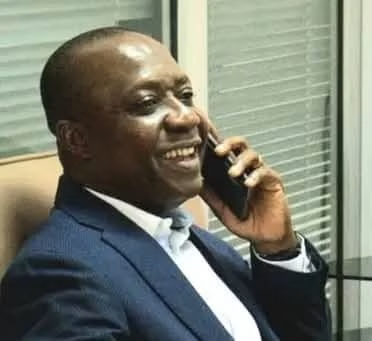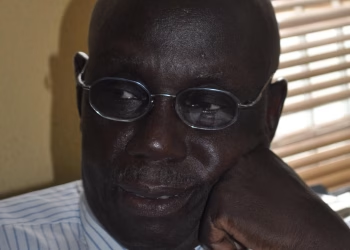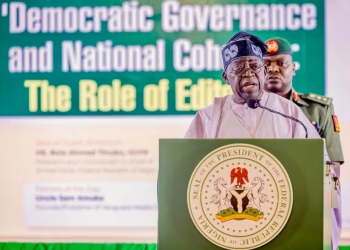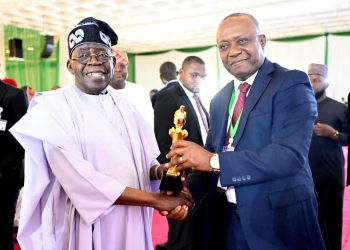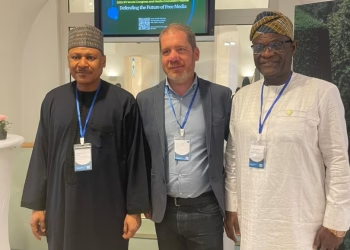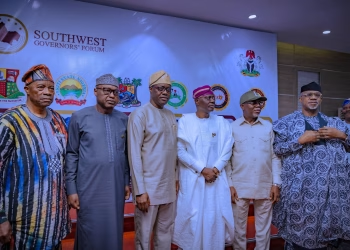ADDRESS BY EZE ANABA, PRESIDENT, NIGERIAN GUILD OF EDITORS (NGE),
AT THE UNICEF–NGE–DAME WORLD CHILDREN’S DAY EVENT,
SHERATON HOTEL, LAGOS ON TUESDAY, NOVEMBER 25, 2025
Ladies and gentlemen,
Nigeria is in a state of emergency. If we did not know before, we should know now. At no other time in our history—except during the civil war—has the condition of our children been this uncertain. The government’s declaration of the highest level of security alert only underscores the reality that these are not normal times.
I will not dwell on the long list of abductions and violence that have erupted across the country in recent days. But whenever we attempt to understand who the latest victims of these barbaric attacks are, we almost always find the same tragic pattern: children killed, injured, displaced, or traumatized. The bloodshed has been relentless.
This is precisely the kind of human suffering the United Nations sought to prevent in 1954 when it dedicated a day to promote and protect the rights and well-being of every child. Yet, 71 years later, the condition of the Nigerian child has declined so gravely that the very schools meant to nurture future leaders have become theatres of war.
This reality imperils not only our present but also our future. Nigeria is home to more than 220 million people—half of whom are children. What happens to our children happens to Nigeria.
As media practitioners, we must confront some painful truths:
Millions of Nigerian children are out of school—the highest number in the world.
Girls are disproportionately affected due to poverty, conflict, cultural norms, and lack of basic infrastructure.
Millions of children under age one are not vaccinated, placing them at risk of preventable diseases.
Children across the country continue to endure violence, abuse, child labour, and early marriage.
In multiple regions, children have been forced into becoming combatants, their innocence and futures stolen
These are not mere statistics. They are the lived experiences of children whose dreams—and our country’s future—are being derailed.
To reverse this tragic trajectory, the media, civil society, UNICEF, and the government must work in lockstep.
THE ROLE OF THE MEDIA
The media is not a passive observer of society; it is an active participant in shaping public consciousness and influencing policy. Our constitutional obligation is clear. We must:
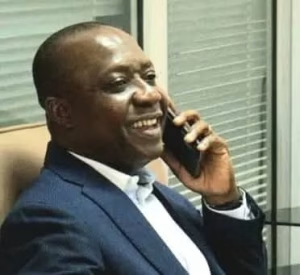

Amplify the voices of the voiceless, bringing attention to the daily struggles of children—from lack of education to health inequalities and insecurity.
Use accurate, verifiable data, working closely with partners like UNICEF, to drive evidence-based reporting.
Highlight not only challenges but also solutions, celebrating successes—child-friendly policies, community-led initiatives, and young change-makers who are rewriting their own stories.
Embrace solutions-based, investigative journalism that helps the public and policymakers understand how to fix the problems, not just what they are.
The time for passive reporting is over.
THE ROLE OF CIVIL SOCIETY
Civil society organizations are the bridge between affected communities and national stakeholders. Their grassroots presence gives them deep insight into the daily realities of children. They must continue to:
Generate community-driven solutions,
Provide child protection and support services,
Engage families and local leaders,
And hold institutions accountable.
The media should amplify their findings and interventions, ensuring that their work informs national conversations and policy decisions.
THE ROLE OF UNICEF
UNICEF has consistently demonstrated unwavering commitment to promoting children’s rights in Nigeria. Their support to the media—in the form of data, training, resources, and global best practices—remains invaluable. Together, UNICEF and the media can:
Develop national awareness campaigns,
Strengthen data-driven reporting,
Build the capacity of journalists to cover child rights issues,
And jointly advocate for policies that protect children.
UNICEF’s leadership provides the evidence we need to tell the stories that matter
THE ROLE OF GOVERNMENT
Ultimately, government has the primary responsibility to protect every child. It must:
Implement and enforce laws that safeguard children’s rights,
Invest robustly in education, healthcare, and social protection,
Secure schools and communities,
Ensure accountability for violence against children,
And collaborate openly with media and civil society to build trust and transparency.
Without strong political will, our advocacy remains incomplete.
A CALL TO ACTION
Colleagues, when we leave this symposium, I challenge each of us—media professionals, civil society actors, government representatives, and our partners at UNICEF—to commit to at least one actionable step:
A series of investigative reports,
A partnership with an NGO,
A policy dialogue,
A dedicated child rights column or programme,
Or a joint advocacy campaign.Collectively, our actions can rewrite the narrative for millions of Nigerian children.
Nelson Mandela once said, “There can be no keener revelation of a society’s soul than the way in which it treats its children.”
As custodians of information—and as citizens—we must be the conscience of our nation. Let us use our platforms, our institutions, and our influence to advocate for policies that place every Nigerian child at the centre of national development.
Let us be the voice of and for our children.

